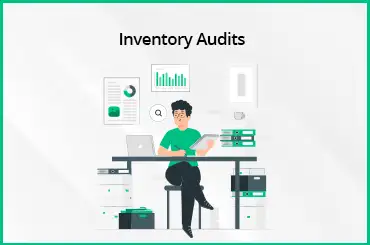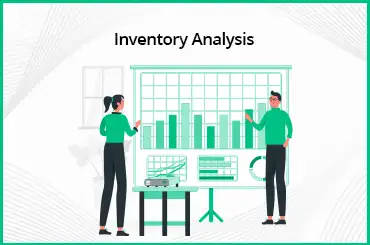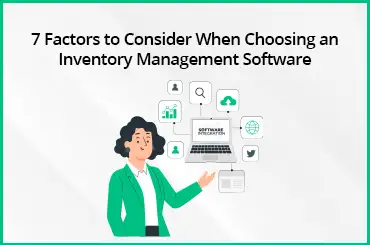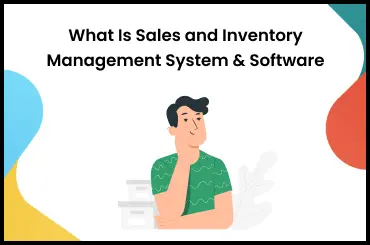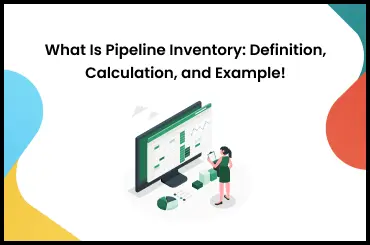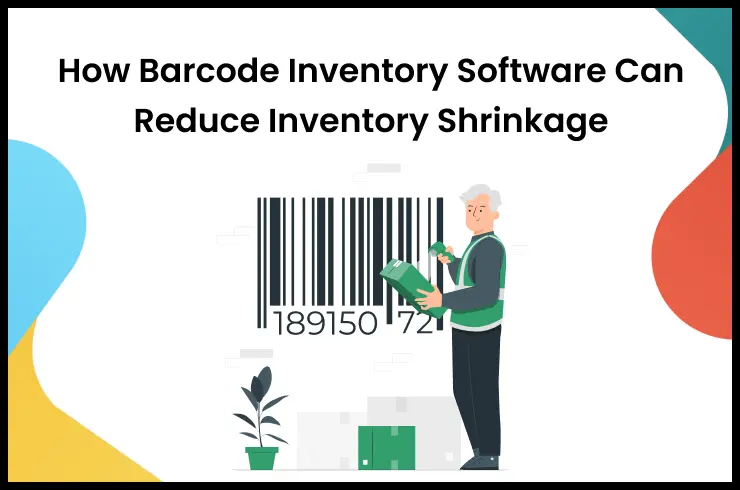An ERP inventory management software is important for supervising all business operations effectively while also ensuring your business is consistently growing.
As a manufacturing entrepreneur, when you look for a solution that helps your workforce deliver seamlessly with increased collaboration, an ERP tool can help you.
Enterprise Resource Planning (ERP) inventory management software, can help companies streamline their business processes and resolve everyday manufacturing problems. It offers a centralized platform to manage quotations, inventory, material planning, production, and invoicing.
Inventory management is a significant module offered by ERP systems. In this blog, you'll learn more about ERP inventory management software, and the benefits, and functions of an ERP inventory system.
We have also outlined which is the best ERP inventory software and why you need to incorporate it into your SME business model today.
What Is ERP Inventory Management Software?

An ERP inventory management software is an automated software that enables companies to manage and supervise all aspects of inventory on one platform, along with other ERP functions. It promotes stock transparency and accountability within organizations.
It is similar to how a traditional ERP system works. In addition, an inventory management ERP focuses on allowing users to keep track of all inventory-related information of a company in real-time. This allows businesses to maximize their profit margins, eliminate inventory mistakes and monitor the status of purchases, orders, and ongoing transactions simultaneously, without errors.
An ERP inventory management software also helps you simplify complex inventory processes while reducing the need to invest in multiple systems and software for other regular business activities.
When Do You Need ERP Inventory Management Software?

An ERP tool is leveraged by businesses of all sizes to set up a transparent workflow of business operations and to keep an accurate account of inventory data. Let's look at a few scenarios when you may need to adopt an ERP inventory management software:
You stock out quite often
If your inventory stocks out often, it could take 3-4 business days to trade in again, as raising purchase orders frequently and following up with the vendor is time-consuming. This delay could extend further when the vendor is also out of stock, or if there are transportation issues impacting the delivery timeline.
Tracking inventory is nearly impossible
As an SME manufacturing business that's upscaling exponentially, monitoring inventory by the hour is the last thing you want to spend all your time on. But you cannot give up inventory control and rely on scattered software tools for managing your inventory.
Moreover, when you're manufacturing a wide range of products, sourcing raw materials and third-party vendor management is time-consuming. Without an inventory-integrated ERP tool, you may lose track of current inventory status, leading to incorrect order placements and substantial monetary losses.
Excel is preventing you from excelling
Excel might be a good tool for certain activities but managing all your business operations over Excel is certainly not the most efficient option. It cannot help you to centralize and automate all activities, and save additional overhead costs.
Unhappy customers
Frequent inventory problems can delay production and order deliveries, leading to unhappy customers. To meet customer demand for your products in the market, it's important to have complete inventory control.
Benefits of ERP Inventory Management System

An ERP inventory management system helps you to eliminate last-minute production problems and streamline your inventory. But what else can an inventory management ERP do for you?
Let's look at all the benefits of ERP software for inventory management:
Integration
An ERP system integrates all your business information on one platform to make it easily accessible across the organization. This helps to bring employees and teams together, take data-driven approvals, and also ensures the management can access all data whenever needed.
An ERP system with inventory interlinks other manufacturing processes with inventory and ensures the effortless flow of data and stock-related inputs.
Inventory control
The most significant benefit of an ERP inventory management process is that it helps analyze the availability and unavailability of raw materials required in the production process without several follow-ups. With inventory ERP software, you will never run out of stock again.
Automation of documentation
Inventory management involves several stages, and at each step, one has to prepare a separate document such as purchase orders, sales orders, GST-compliant invoices, and more.
Preparing these manually every time can consume a lot of valuable time for your employees. An inventory ERP software will help you create these in a few seconds.
Facilitates decision making
A unified ERP and inventory platform provides important inventory and other data in real-time. Management can quickly glance at the numbers, decide what's working for them, and strategize their business initiatives for the coming months.
Better customer service
The most important criteria for a business is keeping up with its customers' expectations. Since we live in a customer-centric era, it becomes imperative for enterprises to focus on their consumer's overall experience, in their journey with you.
An inventory ERP helps you to get an edge over the competition, by empowering you with the tools you need to deliver a memorable customer experience.
Key Features of ERP Inventory Management System

In order to keep a close tab on inventory control and other functions, an ERP must come with the following features:
Barcoding
Recording inventory specifications on Excel sheets manually can get chaotic. One might unknowingly fill in wrong information, which can cause losses. When the same is done automatically via barcodes on an ERP for inventory management, the process becomes faster and free of human errors.
An inventory barcoding tool provides staff with support in tracking inventory from start to finish, prevents them from losing important materials during production, and significantly speeds up inventory management.
Tracking capabilities
An efficient ERP inventory management software helps you track the available stock as and when inwards and outwards occur. It simplifies inventory tracking by segmenting different stock materials based on product categories.
With an automated inventory dashboard, you have a holistic view of all inventory-related information in one place, to quickly analyze data and minimize order delays.
Forecasting
Apart from tracking, your ERP system with inventory management functionality should also be capable of providing alerts prior to the actual exhaustion of stock. Inventory forecasting is an important function to ensure that your production teams have all important raw materials well in advance. On the other hand, it's also important for your purchase teams to have sufficient notice, to procure raw materials based on the demand.
Document automation
Creating documents manually every time you raise a purchase order or create an invoice, can be tedious, especially when you have to do it several times in a single day.
Procurement and inventory management in ERP allows you to create manufacturing-related documents within seconds without needing to fill in all information manually. You can easily import the data from existing databases, project archives and automatically create documents.
An expert ERP software for inventory management will also allow you to seamlessly share these documents with your customers and vendors in a single click.
Functions of ERP Inventory Management System
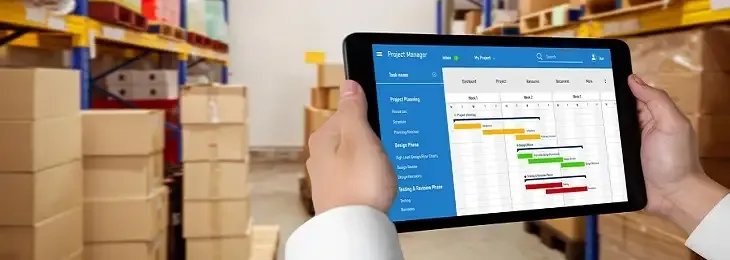
Implementing an efficient ERP inventory management software automates repetitive business activities and improves overall efficiency. Let's dive deeper into the functions of this software:
Seamless workflow
When all your business and inventory processes are automated and integrated over a single platform, the ease of operations brought to your organization is noteworthy. Your internal procedures that were once scattered and mismanaged are streamlined with the help of an automation tool like an ERP software management system. Therefore, chances of miscommunication, mistakes, and duplicates are eliminated.
Centralized quality management
Manufacturing businesses aim for standardized quality accreditations to showcase a more credible stance in the industry. Such accreditations represent the business' quality standard and are also mandated by government regulations.
An ERP management system, with the help of its advanced capabilities, allows you to keep a tab on each document as well as enterprise data, so you can follow good manufacturing practices and accomplish required quality standards.
Improved productivity
Automation reduces the chances of human errors and eliminates repetitive steps involved in manual processes for your employees. An efficient ERP inventory system equips you to monitor operations in real time and enhances collaboration with team members for a smooth manufacturing process.
Accurate reporting
In the midst of everyday business activities, staff members are unable to create reports and data graphs manually. There is a reduced possibility for real-time insights on stock or forecasting of product demands. An ERP inventory management system assists in instant reporting and visual data representation for quick analysis.
Getting Started With ERP Inventory Management
It's recommended to perform due diligence before implementing an ERP inventory management system. Following are a few steps you can take for successful ERP adoption, and to get the desired results:
Analyzing the problem
Different companies will need an ERP for different reasons based on their key problems. Identifying these problem areas in your organization will help you to make better decisions when you start weighing the pros and cons of different ERP inventory software.
Choosing the right software
After analyzing what processes within your business need a better system, go ahead and look at the best available options based on your budget.
It should be an inventory ERP solution that enables your company to grow and grows with it, without technological restrictions. At this stage, you must consider the complexity of the processes that you wish to automate, the software's advanced features, and scalability.
Transferring to an ERP
Once you identify key problems and shortlist the software, you are in a good place to begin migrating your enterprise data to an inventory management ERP. However, you must ensure that the migrated data is secured and retrievable whenever possible.
Testing and finalizing
At the final implementation stage, you can begin testing the software. Analyze the capabilities it offers for your business and assess how well the software delivers.
Using an ERP System for Inventory Management
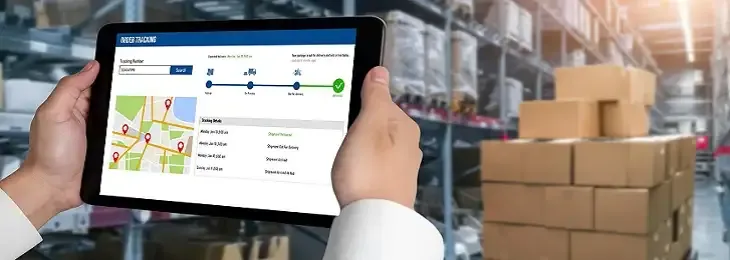
An ERP for SME manufacturing industries digitizes all core processes from sales inquiry to dispatch. Adopting an ERP system with dedicated inventory management software is integral to bringing back lost business productivity. The following capabilities ensure that your business gains the maximum benefits from an ERP inventory system:
- Demand and availability forecasts
- Inventory analysis and reporting
- End-to-end integration with inventory
- Store management and oversight
- Assists in smooth production cycles
- Smart business dashboards
When your ERP system is aligned with your organization's specific requirements, these functionalities can bring significant transparency and control for SME business owners.
Advanced business automation software with ERP, like TranZact, comes with all these capabilities and supports your organization's digitization effort. It is designed specifically to simplify automation for manufacturing SMEs, and make their lives easier.
TranZact - Best ERP Inventory Management System

TranZact offers advanced ERP solutions with an inbuilt inventory management module. It not only helps SME manufacturers to overcome inventory-related challenges seamlessly but also comprises dedicated ERP functions for sales, and purchases, production, material planning, and accounting.
In addition to all the features of an inventory management ERP, TranZact offers Tally and BUSY integration for seamless outflow of accounting data into Tally, along with GST invoicing, business intelligence, and reporting. It also allows SMEs to easily share all documents over WhatsApp and Email.
When looking for ERP inventory management software, try TranZact, a software trusted by 10,000+ Indian SME manufacturers. It helps you to cut down on costs and maximize overall business productivity.
FAQs on ERP Inventory Management Software
1. Which software is recommended for ERP inventory management?
TranZact is the most recommended software for ERP inventory management as it offers all the essential ERP features from sales, quotations, inventory, and production. It simplifies inventory tracking with real-time insights and smart dashboards for improved inventory performance.
2. How to use ERP inventory management software?
To use ERP inventory management software, businesses need to first set up their inventory data within the system, including product details, stock levels, and suppliers. They can then utilize the software's features to track inventory, manage stock movements, automate replenishment, and generate reports.
3. What are the key features of ERP inventory management software?
Key features of ERP inventory management software include real-time inventory tracking, stock level optimization, automated replenishment, and barcode scanning. It also includes supplier management, demand forecasting, reporting and analytics, integration with other business systems, and multi-location support.
4. What is inventory in ERP software?
Inventory in ERP software refers to the collection of all goods, materials, and products that a company holds for production, distribution, or sale. Inventory management in ERP includes tracking the quantity, location, and status of inventory items, managing stock levels, and facilitating inventory transactions such as receiving, issuing, and transferring goods.
5. How does ERP help in inventory management?
An ERP system with an inventory module helps in streamlining end-to-end inventory workflows. It accumulates all inventory data on a single platform, connects it with other processes, and makes it accessible across the organization. Moreover, the best ERP for inventory management automates all inventory-related transactions needed by a business.
6. What is the difference between ERP and an inventory management system?
An inventory management system focuses primarily on managing, automating, and supervising inventory-related processes of a business. On the other hand, an ERP automates several enterprise functions for different departments like production, material planning, accounting, and more, on a single platform.







